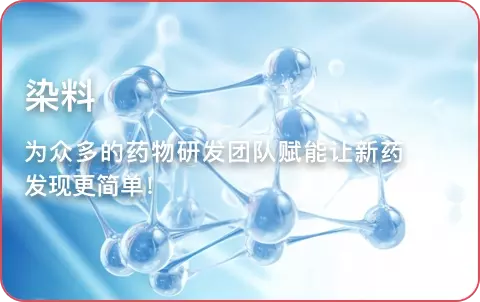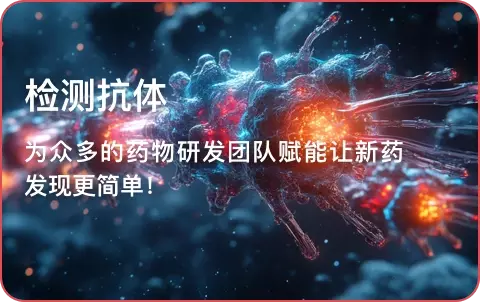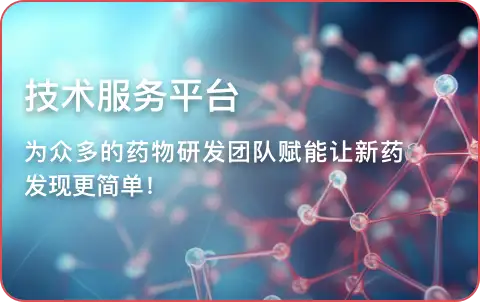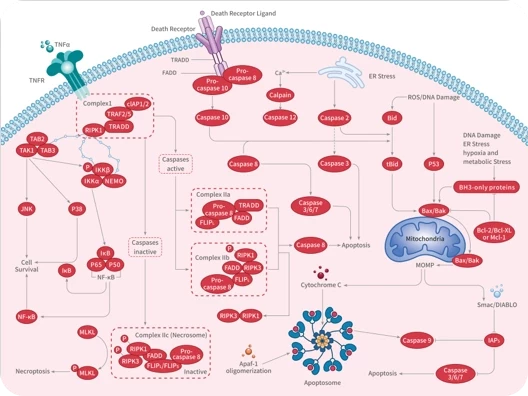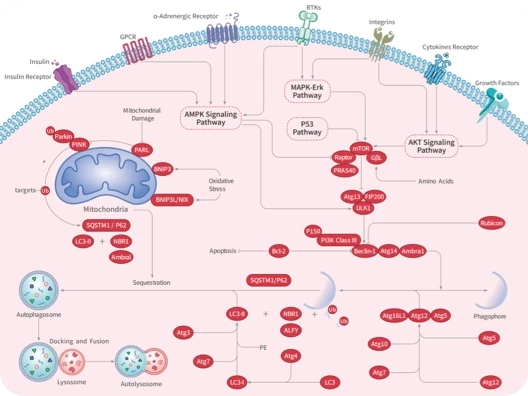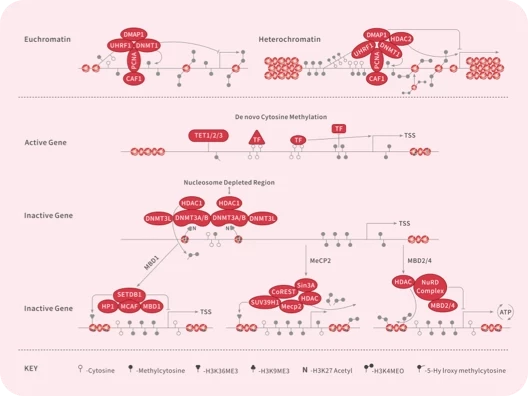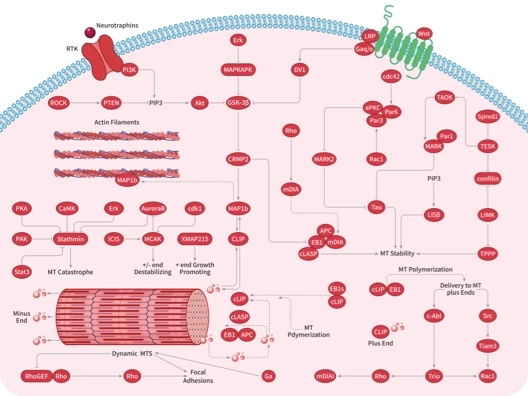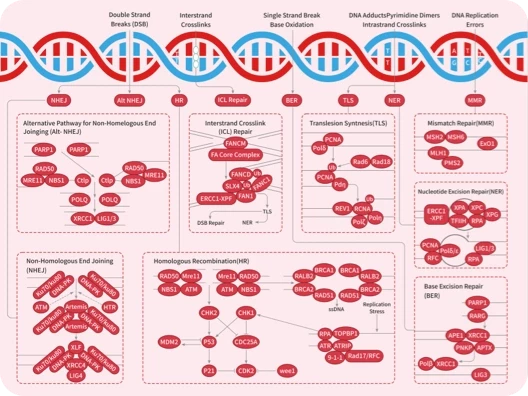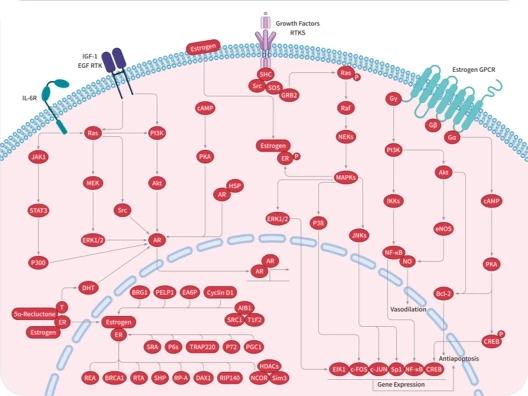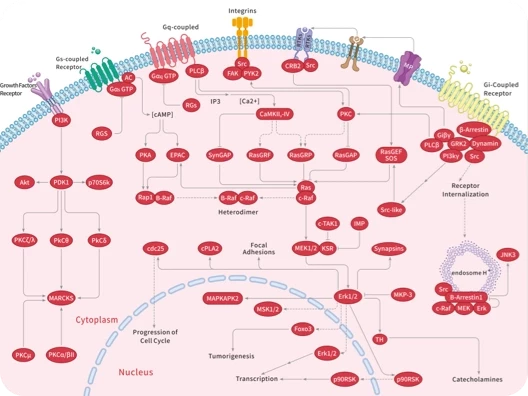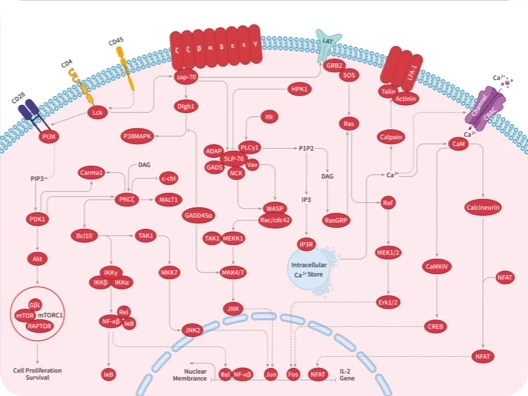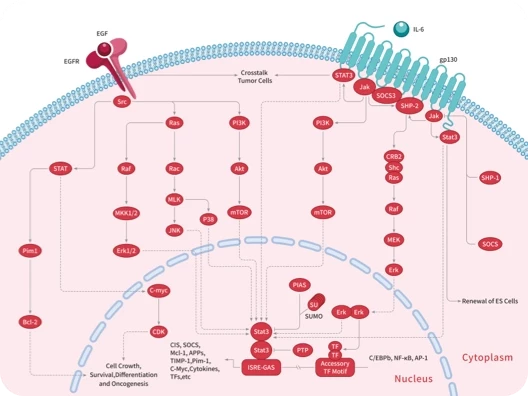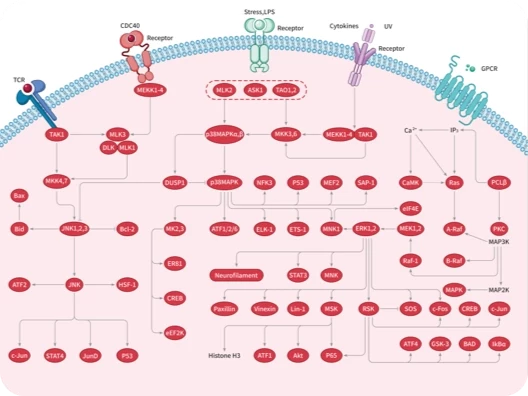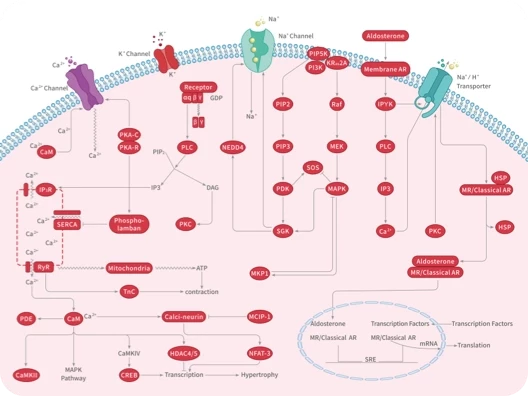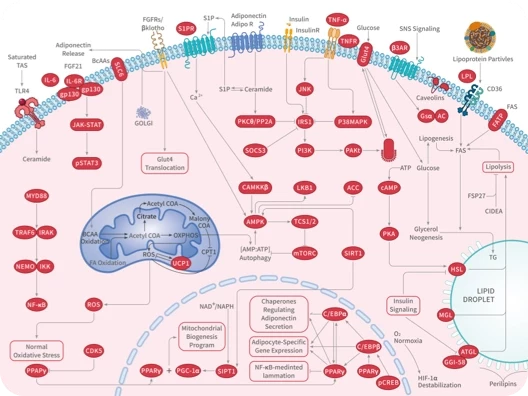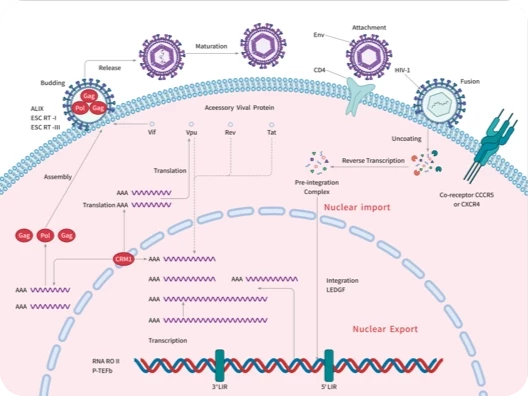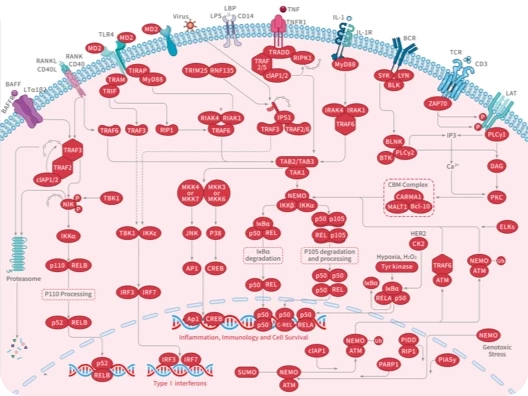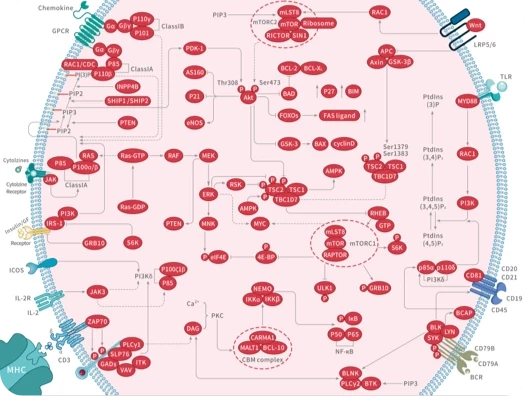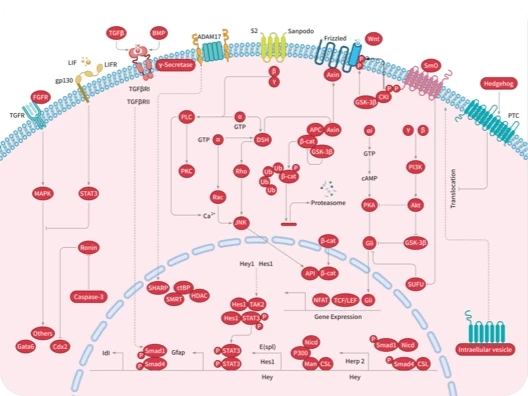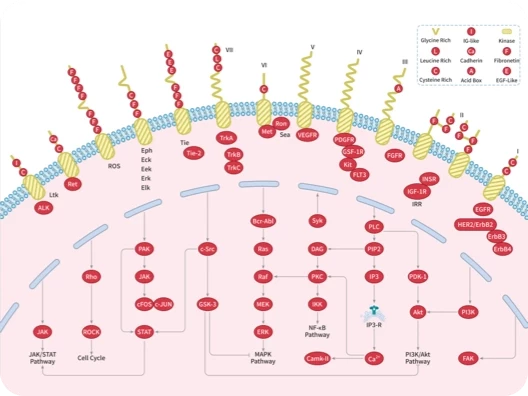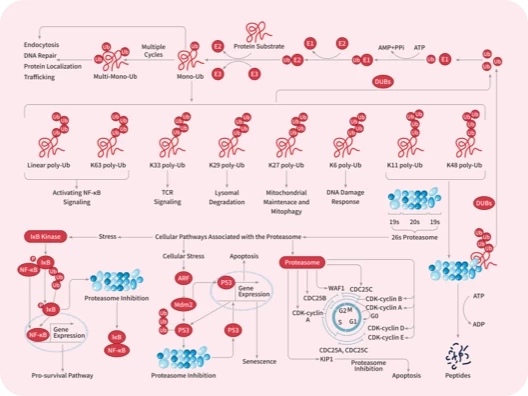- 全部删除
 您的购物车当前为空
您的购物车当前为空
Cystatin B Protein, Human, Recombinant (His)
Cystatin-B, also known as CPI-B, Liver thiol proteinase inhibitor, Stefin-B, CSTB and CST6, is a cytoplasm and nucleus protein which belongs to thecystatin family. Cystatin-B / CSTB is an intracellular thiol proteinase inhibitor. Tightly binding reversible inhibitor of cathepsins L, H and B. Cystatin-B / CSTB is able to form a dimer stabilized by noncovalent forces, inhibiting papain and cathepsins l, h and b. Cystatin-B / CSTB is also thought to play a role in protecting against the proteases leaking from lysosomes. Defects in Cystatin-B / CSTB are the cause of progressive myoclonic epilepsy type 1 (EPM1) which is an autosomal recessive disorder characterized by severe, stimulus-sensitive myoclonus and tonic-clonic seizures. The cystatins are a family of cysteine protease inhibitors with homology to chicken cystatin. Cystatins are physiological inhibitors of cysteine proteinases which are widely distributed in human tissues and fluids. Cystatins typically comprise about 115 amino acids, are largely acidic, contain four conserved cysteine residues known to form two disulfide bonds. Cystatins may be glycosylated and / or phosphorylated, with similarity to fetuins, kininogens, stefins, histidine-rich glycoproteins and cystatin-related proteins. Some of the members are active cysteine protease inhibitors, while others have lost or perhaps never acquired inhibitory activity. Cystatins mainly inhibit peptidases belonging to peptidase families C1 (papain family) and C13 (legumain family).

Cystatin B Protein, Human, Recombinant (His)
| 规格 | 价格 | 库存 | 数量 |
|---|---|---|---|
| 100 μg | ¥ 3,820 | 现货 |
产品信息
| 生物活性 | Measured by its ability to inhibit papain cleavage of a fluorogenic peptide substrate Z-FR-AMC. The IC50 value is < 30 nM. |
| 产品描述 | Cystatin-B, also known as CPI-B, Liver thiol proteinase inhibitor, Stefin-B, CSTB and CST6, is a cytoplasm and nucleus protein which belongs to thecystatin family. Cystatin-B / CSTB is an intracellular thiol proteinase inhibitor. Tightly binding reversible inhibitor of cathepsins L, H and B. Cystatin-B / CSTB is able to form a dimer stabilized by noncovalent forces, inhibiting papain and cathepsins l, h and b. Cystatin-B / CSTB is also thought to play a role in protecting against the proteases leaking from lysosomes. Defects in Cystatin-B / CSTB are the cause of progressive myoclonic epilepsy type 1 (EPM1) which is an autosomal recessive disorder characterized by severe, stimulus-sensitive myoclonus and tonic-clonic seizures. The cystatins are a family of cysteine protease inhibitors with homology to chicken cystatin. Cystatins are physiological inhibitors of cysteine proteinases which are widely distributed in human tissues and fluids. Cystatins typically comprise about 115 amino acids, are largely acidic, contain four conserved cysteine residues known to form two disulfide bonds. Cystatins may be glycosylated and / or phosphorylated, with similarity to fetuins, kininogens, stefins, histidine-rich glycoproteins and cystatin-related proteins. Some of the members are active cysteine protease inhibitors, while others have lost or perhaps never acquired inhibitory activity. Cystatins mainly inhibit peptidases belonging to peptidase families C1 (papain family) and C13 (legumain family). |
| 种属 | Human |
| 表达系统 | E. coli |
| 标签 | N-His |
| 蛋白编号 | P04080 |
| 别名 | ULD,STFB,PME,EPM1A,EPM1,cystatin B (stefin B),CST6 |
| 蛋白构建 | A DNA sequence encoding the human CSTB (P04080) (Met 2-Phe 98) was expressed, with a polyhistide tag at the N-terminus. Predicted N terminal: Met |
| 蛋白纯度 | > 95 % as determined by SDS-PAGE |
| 分子量 | 12.5 kDa (predicted); 15 kDa (reducing conditions) |
| 内毒素 | Please contact us for more information. |
| 缓冲液 | Lyophilized from a solution filtered through a 0.22 μm filter, containing 50 mM Tris, 50 mM NaCl, pH 8.0.Typically, a mixture containing 5% to 8% trehalose, mannitol, and 0.01% Tween 80 is incorporated as a protective agent before lyophilization. |
| 复溶方法 | A Certificate of Analysis (CoA) containing reconstitution instructions is included with the products. Please refer to the CoA for detailed information. |
| 存储 | It is recommended to store recombinant proteins at -20°C to -80°C for future use. Lyophilized powders can be stably stored for over 12 months, while liquid products can be stored for 6-12 months at -80°C. For reconstituted protein solutions, the solution can be stored at -20°C to -80°C for at least 3 months. Please avoid multiple freeze-thaw cycles and store products in aliquots. |
| 运输方式 | In general, Lyophilized powders are shipping with blue ice. |
| 研究背景 | Cystatin-B, also known as CPI-B, Liver thiol proteinase inhibitor, Stefin-B, CSTB and CST6, is a cytoplasm and nucleus protein which belongs to thecystatin family. Cystatin-B / CSTB is an intracellular thiol proteinase inhibitor. Tightly binding reversible inhibitor of cathepsins L, H and B. Cystatin-B / CSTB is able to form a dimer stabilized by noncovalent forces, inhibiting papain and cathepsins l, h and b. Cystatin-B / CSTB is also thought to play a role in protecting against the proteases leaking from lysosomes. Defects in Cystatin-B / CSTB are the cause of progressive myoclonic epilepsy type 1 (EPM1) which is an autosomal recessive disorder characterized by severe, stimulus-sensitive myoclonus and tonic-clonic seizures. The cystatins are a family of cysteine protease inhibitors with homology to chicken cystatin. Cystatins are physiological inhibitors of cysteine proteinases which are widely distributed in human tissues and fluids. Cystatins typically comprise about 115 amino acids, are largely acidic, contain four conserved cysteine residues known to form two disulfide bonds. Cystatins may be glycosylated and / or phosphorylated, with similarity to fetuins, kininogens, stefins, histidine-rich glycoproteins and cystatin-related proteins. Some of the members are active cysteine protease inhibitors, while others have lost or perhaps never acquired inhibitory activity. Cystatins mainly inhibit peptidases belonging to peptidase families C1 (papain family) and C13 (legumain family). |








